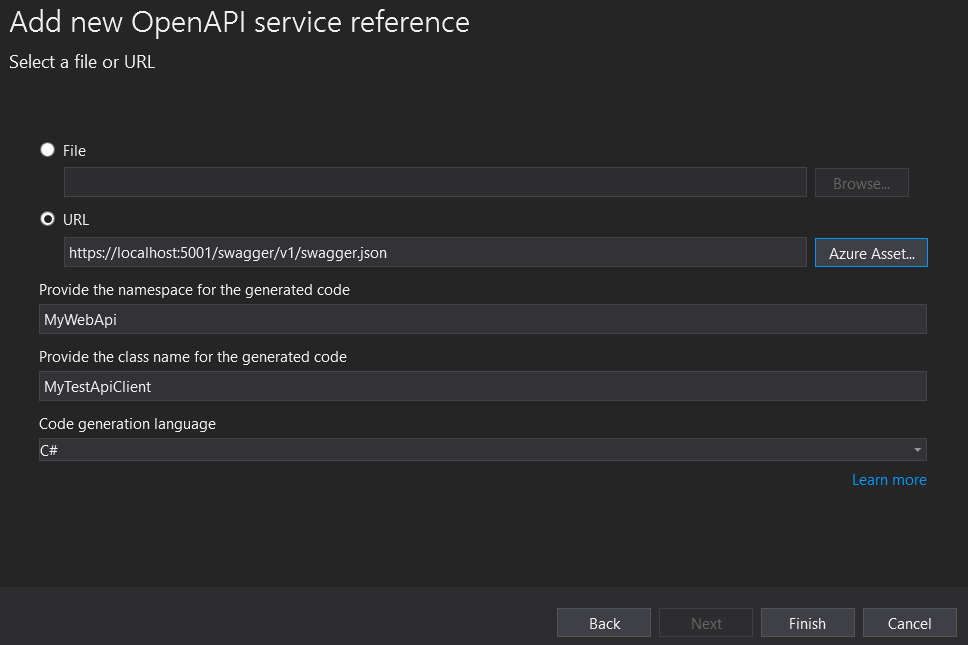Someone out there must have run into this already...
I created a WebApi solution with swagger implemented, full documentation, the whole 9 yards!
- When I run my web api solution, see the swagger output (and I've tested the endpoints, all working fine)
- I can see the swagger definition: https://localhost:5001/swagger/v1/swagger.json
Now, I want to consume this Api as a connected service on my web app. So following every single tutorial online:
- I go to my webapp
- right click on Connected Services
- Add Connected Service
- Add Service Reference > OpenApi > add Url, namespace & class name
![enter image description here]()
That generates a partial class in my solution (MyTestApiClient)
public parial class MyTestApiClient
{
// auto generated code
}
Next step, inject the service in Startup.cs
services.AddTransient(x =>
{
var client = new MyTestApiClient("https://localhost:5001", new HttpClient());
return client;
});
Then, inject the class into some class where it's consumed and this all works
public class TestService
{
private readonly MyTestApiClient _client; // this is class, not an interface -> my problem
public TestService(MyTestApiClient client)
{
_client = client;
}
public async Task<int> GetCountAsync()
{
return _client.GetCountAsync();
}
}
So everything up to here works. BUT, this generated OpenApi client doesn't have an interface which sucks for the purposes of DI and Unit Testing.
I got around this by creating a local interface IMyTestApiClient, added to the generated class (MyTestApiClient). I only have 1 endpoint in my WebApi so have to declare that on my interface.
public parial class MyTestApiClient : IMyTestApiClient
{
// auto generated code
}
public interface IMyTestApiClient
{
// implemented in generated MyTestApiClient class
Task<int> GetCountAsync();
}
services.AddTransient<IMyTestApiClient, MyTestApiClient>(x =>
{
IMyTestApiClient client = new MyTestApiClient("https://localhost:5001", new HttpClient());
return client;
});
public class TestService
{
private readonly IMyTestApiClient _client; // now injecting local interface instead of the generated class - great success
public TestService(IMyTestApiClient client)
{
_client = client;
}
public async Task<int> GetCountAsync()
{
return _client.GetCountAsync();
}
}
But this is a bad approach because it makes me manually create an interface and explicitly declare the methods I want to consume. Furthermore, every time my Api gets updated, I will have to tweak my local interface.
So question time: How can I add an OpenApi Service Reference that automagically also generates an interface as well? Thanks in advance for any help getting to a viable solution.

